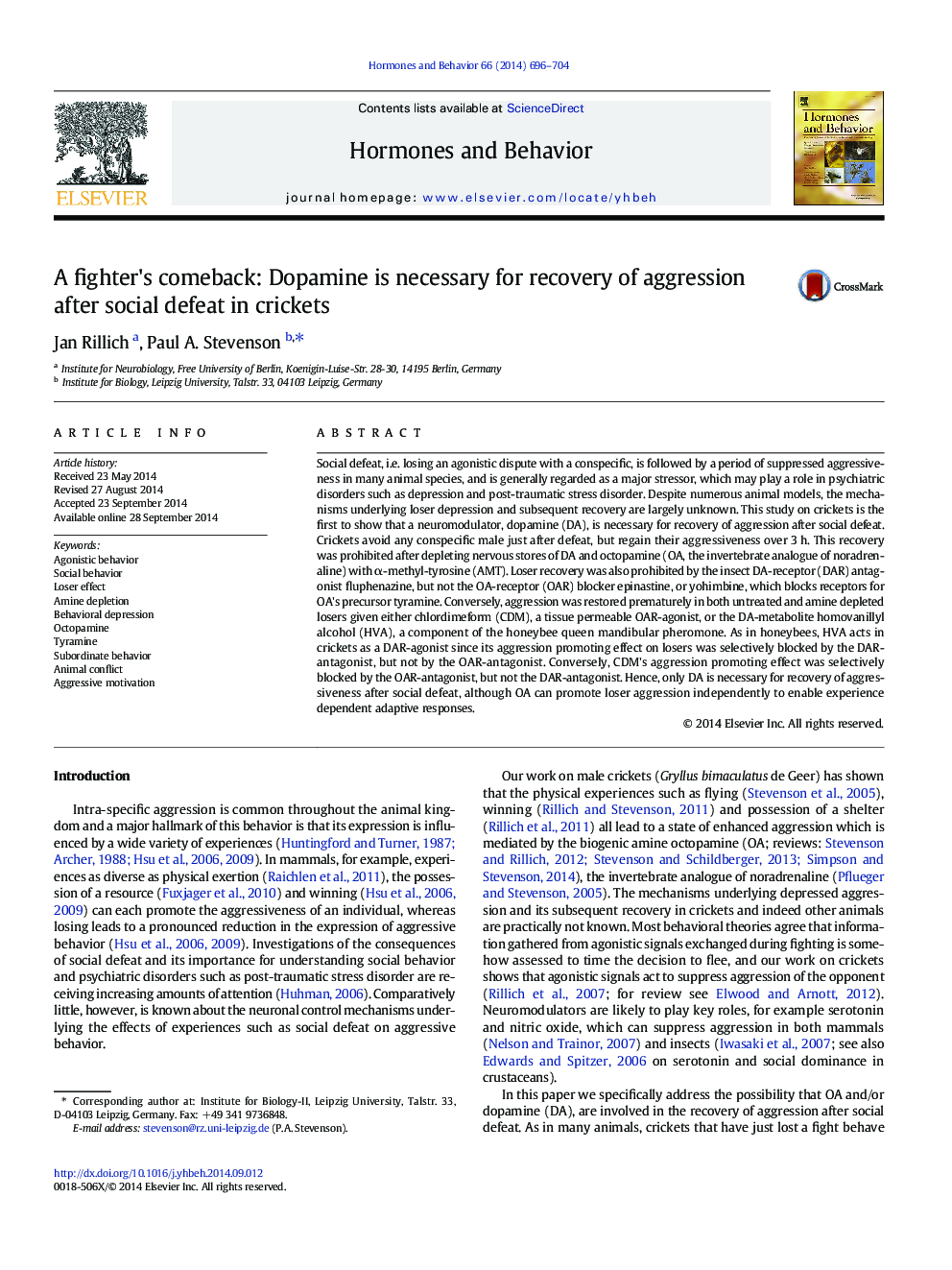| Article ID | Journal | Published Year | Pages | File Type |
|---|---|---|---|---|
| 10301161 | Hormones and Behavior | 2014 | 9 Pages |
Abstract
Social defeat, i.e. losing an agonistic dispute with a conspecific, is followed by a period of suppressed aggressiveness in many animal species, and is generally regarded as a major stressor, which may play a role in psychiatric disorders such as depression and post-traumatic stress disorder. Despite numerous animal models, the mechanisms underlying loser depression and subsequent recovery are largely unknown. This study on crickets is the first to show that a neuromodulator, dopamine (DA), is necessary for recovery of aggression after social defeat. Crickets avoid any conspecific male just after defeat, but regain their aggressiveness over 3 h. This recovery was prohibited after depleting nervous stores of DA and octopamine (OA, the invertebrate analogue of noradrenaline) with α-methyl-tyrosine (AMT). Loser recovery was also prohibited by the insect DA-receptor (DAR) antagonist fluphenazine, but not the OA-receptor (OAR) blocker epinastine, or yohimbine, which blocks receptors for OA's precursor tyramine. Conversely, aggression was restored prematurely in both untreated and amine depleted losers given either chlordimeform (CDM), a tissue permeable OAR-agonist, or the DA-metabolite homovanillyl alcohol (HVA), a component of the honeybee queen mandibular pheromone. As in honeybees, HVA acts in crickets as a DAR-agonist since its aggression promoting effect on losers was selectively blocked by the DAR-antagonist, but not by the OAR-antagonist. Conversely, CDM's aggression promoting effect was selectively blocked by the OAR-antagonist, but not the DAR-antagonist. Hence, only DA is necessary for recovery of aggressiveness after social defeat, although OA can promote loser aggression independently to enable experience dependent adaptive responses.
Keywords
Related Topics
Life Sciences
Biochemistry, Genetics and Molecular Biology
Endocrinology
Authors
Jan Rillich, Paul A. Stevenson,
